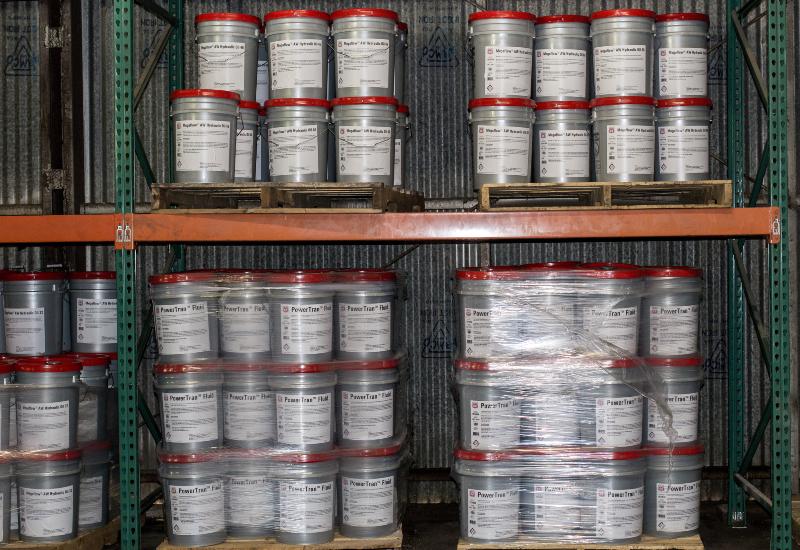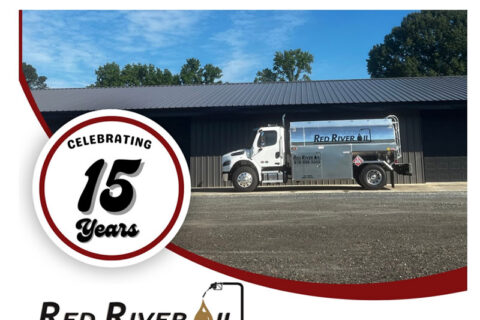High-Quality Lubricants: Benefits, Applications & Technology
High-quality lubricants are a must-have for any heavy-duty or industrial operation. Whether you run a plant, operate an agricultural site, or manage a fleet of vehicles, the right lubricant helps protect your equipment and reduce unplanned downtime. Take a closer look at industrial lubricants, why they matter, how they’re used, and where the technology is headed.

What Is Industrial-Grade Synthetic Lubricant?
Industrial-grade synthetic lubricants are engineered oils designed for hard-working machines. Unlike conventional oils refined from crude petroleum, synthetic lubricants are made from chemical compounds that give them more strength and improved consistency. This makes them ideal for environments with extreme temperatures, heavy loads, and nonstop operations.
Synthetic lubricants often mix custom-designed base oils and high-tech additives. These additives improve stability, prevent rust, reduce oxidation, and help the oil perform longer. Many are also built to resist breakdown under intense pressure, a significant advantage for heavy-duty vehicles and industrial systems.
In short, synthetic lubricants are built to last longer, protect better, and work harder than conventional oils.
What Are the Benefits of High-Quality Lubricants?
High-quality lubricants offer real savings and performance improvements across any facility or fleet. Here are some of the most important reasons to switch to high-quality lubricants:
- Reduce friction and wear: A strong oil film between moving parts reduces metal-on-metal contact. This means fewer damaged parts, longer machine life, and better reliability.
- Lower energy use: When machinery runs smoother, it doesn’t have to work as hard. Less resistance means less energy consumption, which amounts to lower electric or fuel bills.
- Extend equipment life: High-quality lubricants protect against heat, rust, and wear. This leads to fewer part replacements and less wear-and-tear damage in the long run.
- Minimize downtime: Better oil is associated with fewer breakdowns. With longer-lasting lubrication, maintenance schedules stretch further apart and unplanned stops become less common.
- Improve safety: Proper lubrication reduces the risk of parts seizing or failing mid-operation, which lowers the chance of accidents and promotes worker safety.
- Save on maintenance: Fewer oil changes, part failures, and emergency repairs mean you save on parts, labor, and service visits.
- Support sustainability: Some high-performance lubricants are biodegradable or have a longer service life, both of which cut down on waste oil and replacement materials.
What Are the Applications for High-Quality Lubricants?
High-quality lubricants are used in numerous heavy-duty and industrial settings. Here are the most common applications:
- Heavy-duty vehicles: Trucks, tractors, buses, and construction equipment use engine oils, gear lubricants, and transmission fluids built to handle rough roads and oversized loads. These oils help engines run cooler, extend oil drain intervals, and protect against wear.
- Industrial machinery: High-performance lubricants are used in compressors, turbines, pumps, conveyors, and gearboxes. These machines often run nonstop and require oils that remain stable under constant heat and pressure.
- Automated systems: Facilities with central lubrication systems use precise oil or grease delivery to keep machines operating without manual intervention. High-quality lubricants ensure each part gets the right coverage and protection.
- High-load and high-heat processes: In metal stamping, forming, or steel production, extreme conditions break down regular oils fast. Synthetic lubricants maintain their performance even when things get hot and heavy.
- Food and pharmaceutical equipment: Lubricants in food, beverage, and drug production must meet strict safety standards. These oils are non-toxic, NSF-certified, and designed to perform without contaminating the product.
- Specialty and electric applications: Electric vehicle systems, robotics, aerospace, and cleanroom equipment all require lubricants with low volatility and high-performance ratings in sensitive environments.
The Future of High-Quality Lubricant Technology
Lubricants are advancing as smarter machines and greener operations become the norm. Tomorrow’s lubricants are expected to protect equipment better and help businesses run cleaner, safer, and more efficiently. Here are the technologies shaping the future:
- Nano-lubricants: Minuscule particles like graphene and molybdenum disulfide are being added to oils to reduce friction, improve heat transfer, and even repair small surface damage. These particles make lubrication more effective at the microscopic level.
- Bio-based and eco-friendly oils: Oils made from plant-based materials are becoming more stable and powerful. They’re biodegradable, low-toxicity, and perfect for environmentally sensitive areas like agriculture or food production.
- Smart lubrication systems: Internet-connected sensors can track lubricant temperature, contamination, and viscosity in real time. This helps predict maintenance needs before something breaks to keep equipment in top shape and reduce downtime.
- Self-healing oils: Still in the research phase, these oils contain microcapsules that release additives when the oil breaks down. They can restore lubricating power without needing an oil change, which could greatly benefit remote or hard-to-access equipment.
- Advanced additive packages: Modern lubricants are being made with multifunction additives that offer better wear protection, oxidation resistance, and thermal control. These packages extend oil life and improve performance, especially in high-load environments.
- Water-based and gel lubricants: New low-friction gel lubricants are gaining favor for their ability to lower resistance even further than oil-based options. They are still new to the market but could change how lubrication works in the future.
Contact Red River Oil Company for High-Quality Lubricants
Red River Oil Company has over a century of combined experience in fuel and oil distribution, with four locations in Ashdown, Texarkana, Foreman, and Idabel to support your operations across the four states region. As a locally owned company, we pride ourselves on exceptional service, attention to detail, and customized service plans for operations of every size. Let us help you boost performance, reduce downtime, and futureproof your machinery, whether you’re based in Texas, Arkansas, Oklahoma, or Louisiana. Contact us today for help customizing a lubrication solution just for you.


